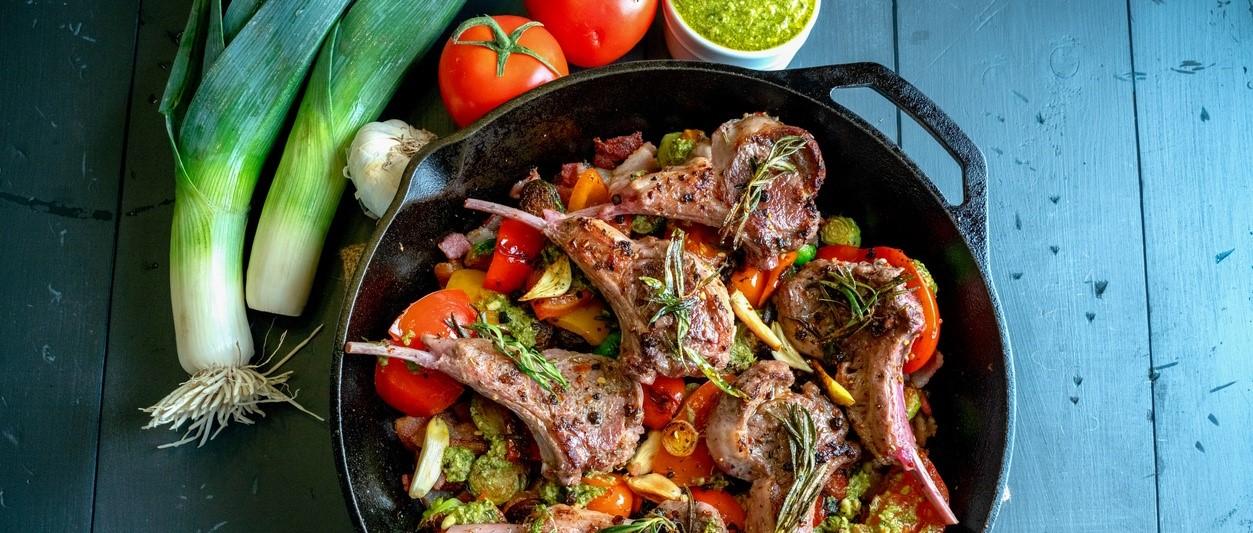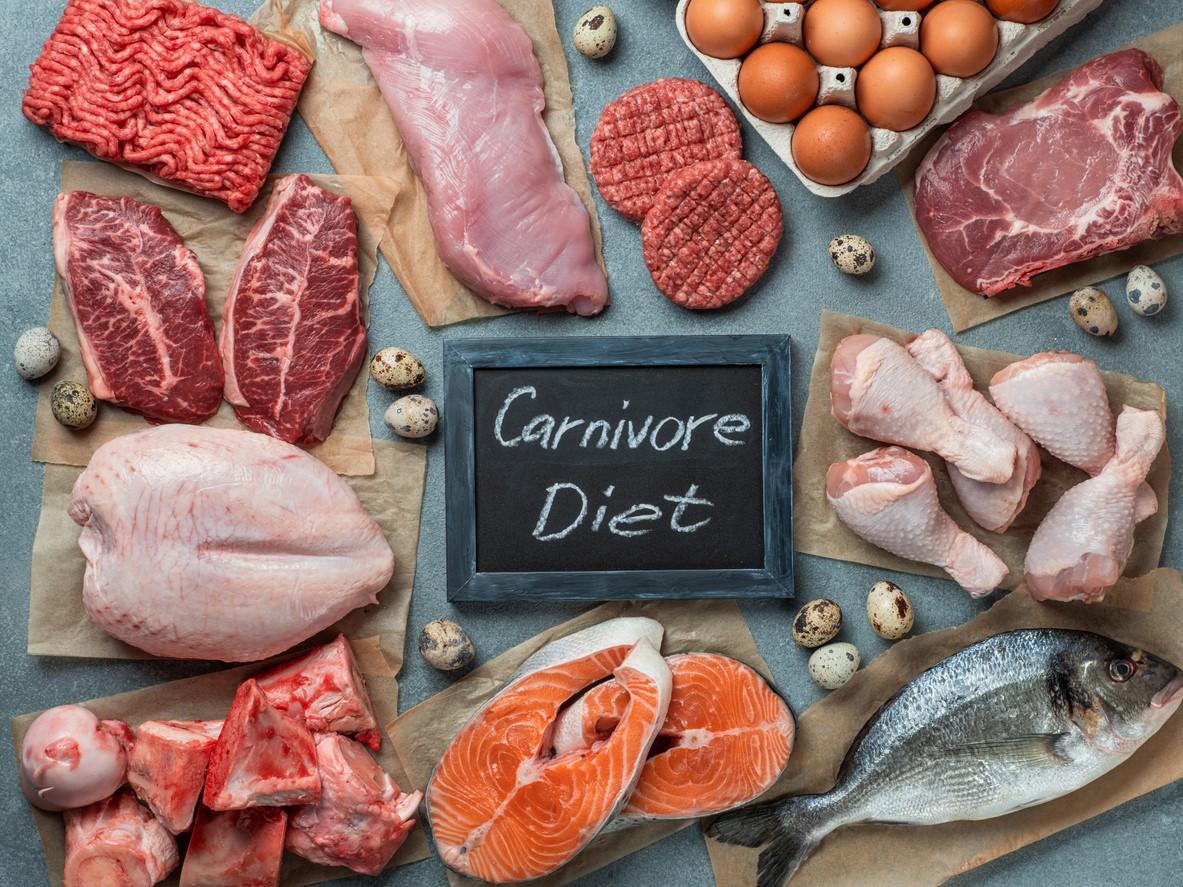
12 trusted diets for your new year goals
Peer reviewed by Dr Krishna Vakharia, MRCGPLast updated by Victoria RawLast updated 4 Dec 2024
Meets Patient’s editorial guidelines
- DownloadDownload
- Share
- Language
- Discussion
Not all New Year diets are fads. We've hand-picked twelve of our most science-backed and sustainable diets, so that you can find the right one to suit your New Year health goals, your lifestyle, and perhaps even your other New Year resolutions.
In this article:
Continue reading below
Diets for your new year health goals
For many of us, a new year brings an opportunity for change. Whether your nutrition goals are weight related, chosen to make you feel better in yourself, or focussed on helping you live a long, disease-free life, New Year diets are often the go-to strategy. Why then do so many fail within a few months?
The problem is that many New Year diets are crash diets. These are too calorie and nutrient-restrictive to be sustainable and good for us in the long term.
Yet, embarking on a New Year diet can be a positive experience that improves your health in the way you need it to - not just for the beginning of the year, but the whole year round.
The longevity diet - live for longer
Far from being a fad, the longevity diet is the brainchild of Dr Longo and his scientific research into ageing. This diet is designed to slow down ageing in our bodies and help prevent disease.
It combines a mainly plant-based diet, with some fish allowed and a little flexibility for meat. The longevity diet also lays out rules for when you eat, how much, and includes a fasting-mimicking technique - a short-term form of restrictive dieting - several times a year.
Find out more here: The Longevity diet.
The Mediterranean diet - keep your heart healthy
Focusing on a wholesome blend of nutritious foods and lifestyle practices, the Mediterranean diet emphasises the consumption of fruits, vegetables, whole grains and healthy fats.
Widely endorsed by health experts, this diet incorporates fibre-rich foods, nuts, seeds, legumes, and dairy products, alongside moderate portions of fish, while minimising processed foods.
Renowned for its numerous health benefits, the Mediterranean diet can help lower your chance of heart disease, stroke and type 2 diabetes.
Find out more here: The Mediterranean diet
The DASH diet - lower your blood pressure
The DASH diet is a heart-healthy flexible eating plan that can benefit anyone, whether you are managing poor heart health or looking to protect yourself against future health issues. DASH, which stands for Dietary Approaches to Stop Hypertension, doesn't cut out any food groups.
Instead, it provides a guide on portion sizes, putting emphasis on colourful fruits and vegetables and limiting sugars and unhealthy fats - much like the Mediterranean diet. It also considers how salt raises your blood pressure.
Find out more here: The DASH diet.
The MIND diet - support your brain
Developed to test if what we eat can lower our chances of dementia, the MIND diet combines the DASH diet with the Mediterranean diet.
This means consuming less salt and unhealthy fats, and eating foods that are as natural as possible - not ones that have been ultra processed.
The big focus is on foods that can help prevent age-related brain decline - whole grains, fish, green leafy vegetables, nuts, berries, beans, white meat, and olive oil.
Find out more here: The MIND diet.
The Whole30 diet - reset your eating habits
The Whole30 diet is a temporary and very restrictive diet based on eliminating certain foods from your diet for a period. It’s a 30-day food elimination phase, followed by a food reintroduction phase.
During phase one, you'll only eat whole foods - foods that are natural and unprocessed - and foods that are not often linked to food intolerances and allergies.
The idea is that this detox will allow you to break bad eating habits, like sugar addiction, and identify whether your body reacts negatively when foods are reintroduced - such as food sensitivities linked to low energy or mood. Whole30 is not a weight loss diet and shouldn't be followed past the subscribed time period.
Find out more here: The Whole30 diet.
The Fast 800 diet - achieve sustainable weight loss
Combining the Mediterranean diet, intermittent fasting, and a three-phase plan, the Fast 800 diet is designed to help you lose weight healthily and reduce your likelihood of weight-related conditions like type 2 diabetes and heart disease.
The Very Fast 800 is phase one - a temporary 800-calorie-a-day to kickstart significant weight loss for those considered overweight or obese. Phase two - The New 5:2 - is an adaptation of the original 5:2 diet that can be followed long-term. Phase three - known as Way of Life - is about maintaining the healthy weight you reached with phases one and/or two.
Find out more here: The Fast 800 diet.
The anti-inflammatory diet - ward off disease
Long-term inflammation - where your immune system triggers internal swelling throughout your body - can damage cells and cause serious health problems, including certain cancers and heart disease.
An anti-inflammatory diet means eating foods that fight inflammation, like fruits, vegetables, oily fish, unrefined whole grains and dark chocolate. It also means limiting other foods that promote it, like the ultra-processed foods common in a Western diet.
Find out more here: The anti-inflammatory diet.
The TLC diet - lower your cholesterol
The TLC diet, which stands for Therapeutic Lifestyle Changes diet, is closer to a set of flexible guidelines rather than a diet with strict, complicated rules.
It was developed by the National Institutes of Health in the US to help people lower their cholesterol to healthy levels, which lowers their chance of heart disease and stroke.
The idea is to eat more healthy, less processed foods, and less saturated and trans fats - like butter, processed meats, and cakes.
Find out more here: The TLC diet.
The Eatwell Guide - find your balance
Also not a diet in the traditional sense of the word, the Eatwell Guide explains the importance of a healthy, balanced diet in a simple, visual way.
Breaking down each main food group into recommended portions, it helps you understand which foods you should eat more of and which ones you should limit.
Following these guidelines of basic food nutrition can keep your heart healthy, lower your cholesterol and blood pressure, and feed your brain the good stuff it needs to function well.
Find out more here: The Eatwell Guide
Diets for other New Year's resolutions
Diets aren't always about improving our own health. If you're joining the Vegan-for-January campaign, making environmental resolutions, or plan to try for a baby this year, we have a few diets that may support your New Year goals.
To complete Veganuary
With growing popularity each January, non-profit organisation Veganuary challenges people to follow a vegan diet for the whole month.
Their aim is to introduce meat eaters to tasty plant-based recipes that they may carry forward into the rest of the year.
Alongside environmental and ethical motives, a vegan diet can support your gut and brain, reduce your odds of developing cancer, and help manage certain conditions. Click below for five easy vegan food swaps that do a good job of mimicking your favourite meats.
Find out more here: 5 easy vegan swaps for Veganuary.
To look after the planet
The planetary health diet has been created by scientists to help us eat in a way that's good for both our bodies and the environment.
They believe that if enough people follow this flexible eating plan, the food supply chain will adapt and improve access to nutritious food in the parts of the world that need it.
It involves following portion size guidelines and eating mostly plant-based foods, including plenty of colourful fruit and veg.
Dairy and meat should be eaten in moderation, and you should try to limit saturated fats and refined, highly processed foods.
Find out more here: The planetary health diet.
To try for a baby
If you are planning to naturally conceive a baby this year, it's normal for this to take some time. While not everything is in our control when it comes to fertility, diet is one thing that could make a difference - for both women and men.
A fertility specialist lays out the evidence for a fertility diet, which describes a healthy, well-balanced diet filled with foods that support things like sperm health, ovulation, and your reproductive hormones.
Find out more here: The fertility diet.
These diets are backed by scientific evidence, but this doesn't mean they are each suitable and safe for everyone to try. Please see our main diet pages linked above for more information, and if in doubt, ask your doctor before starting a specific diet.
Patient picks for Diet

Diet and nutrition
What is the Whole30 diet?
Many physical and mental problems are linked to what you eat. Perhaps you're struggling with a lack of energy, poor sleep, digestive issues, or low mood - how do you work out if what you're eating is to blame? The Whole30 diet is a highly restrictive, 30-day elimination diet that claims to get you these answers. Celebrities like Busy Phillips and Emmy Rossum have described the Whole30 diet as intense but worthwhile. We sift through the hype and ask if Whole30 is grounded in evidence - or if it's just another fad.
by Amberley Davis

Diet and nutrition
What is the carnivore diet and is it healthy?
The #carnivorediet tag has gained more than 900 million views on TikTok. Far from your average high-protein low-carb diet, on the carnivore diet you eat meat, and meat alone. If this sounds questionable for your health and contrary to mainstream nutritional advice, that's because it is.
by Amberley Davis
Continue reading below
Article history
The information on this page is peer reviewed by qualified clinicians.
Next review due: 6 Dec 2027
4 Dec 2024 | Latest version
17 Dec 2023 | Originally published
Authored by:
Amberley Davis

Ask, share, connect.
Browse discussions, ask questions, and share experiences across hundreds of health topics.

Feeling unwell?
Assess your symptoms online for free
Sign up to the Patient newsletter
Your weekly dose of clear, trustworthy health advice - written to help you feel informed, confident and in control.
By subscribing you accept our Privacy Policy. You can unsubscribe at any time. We never sell your data.